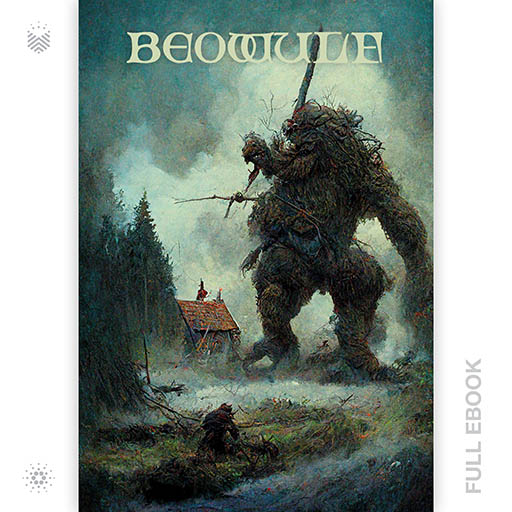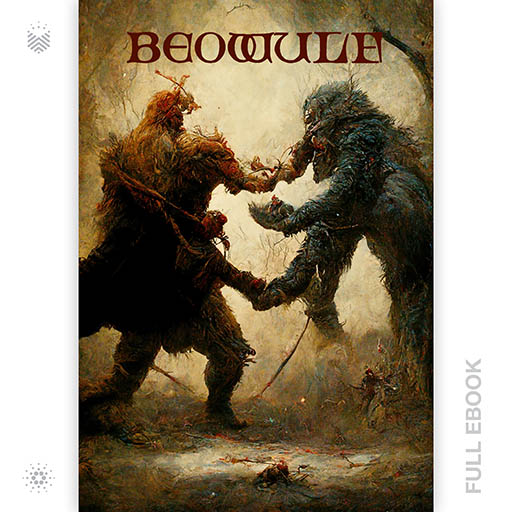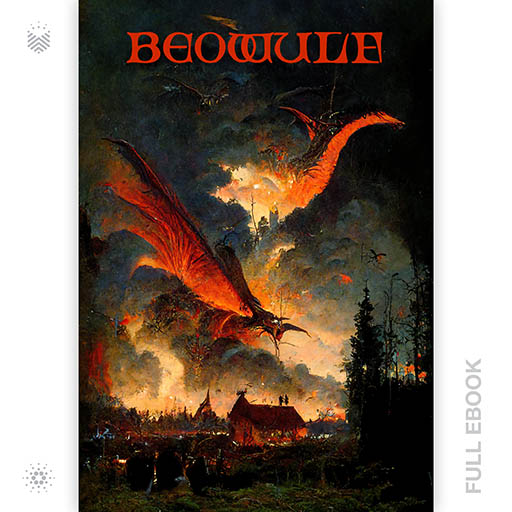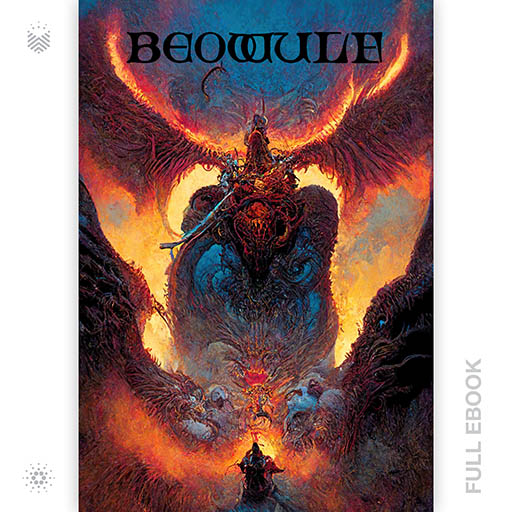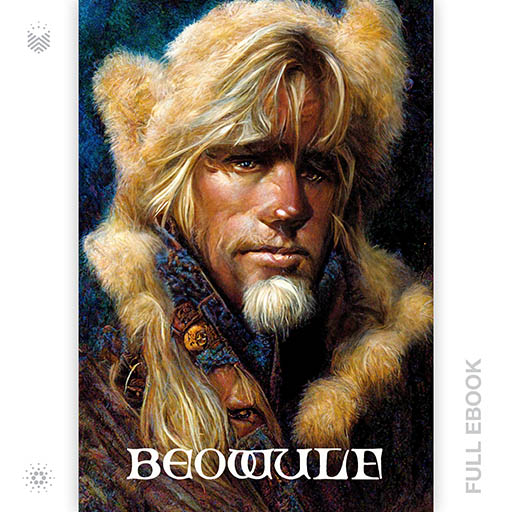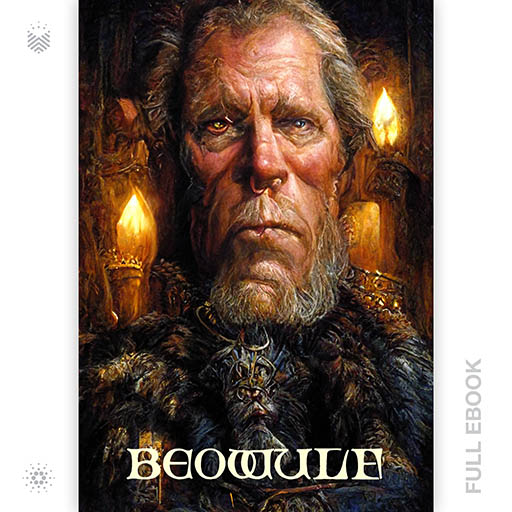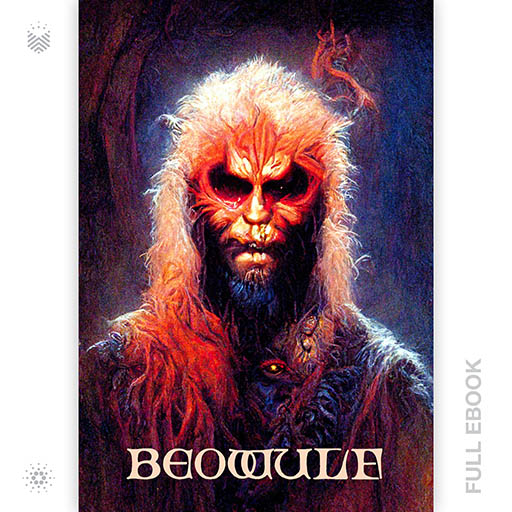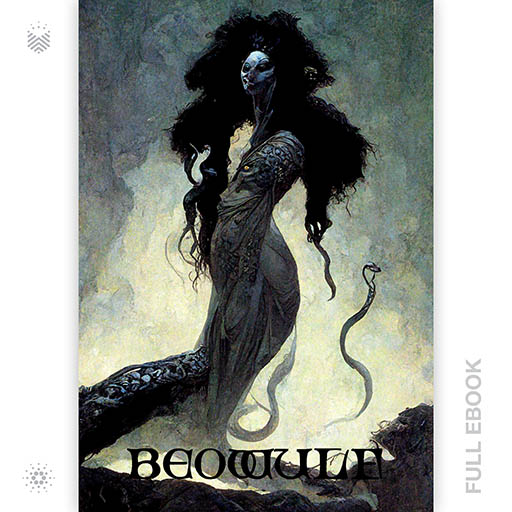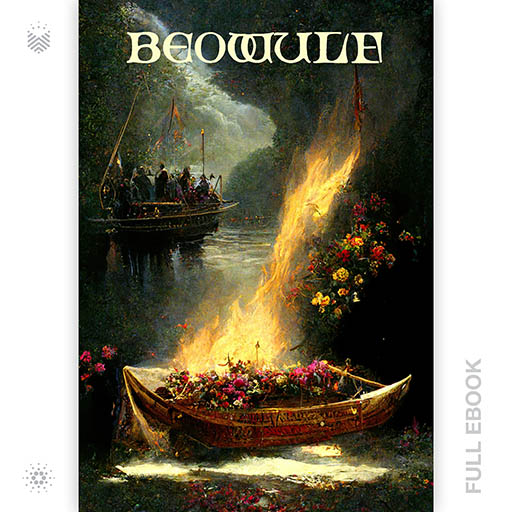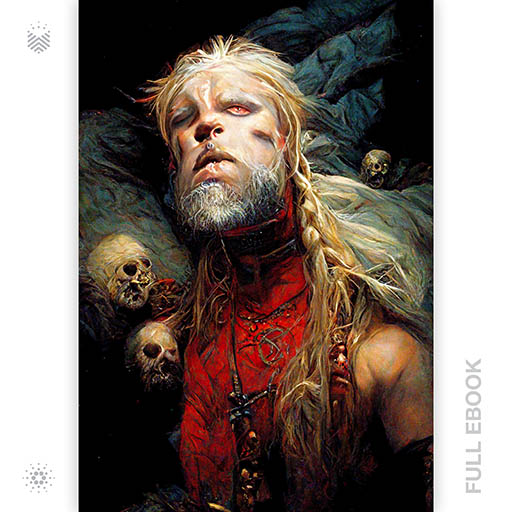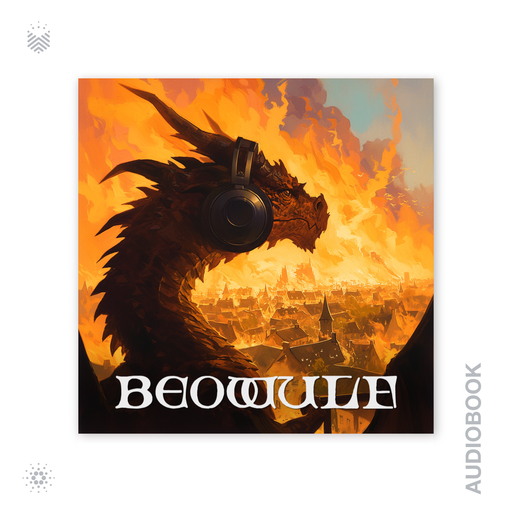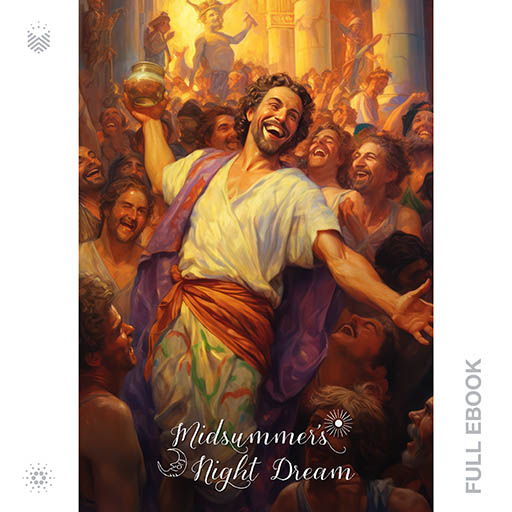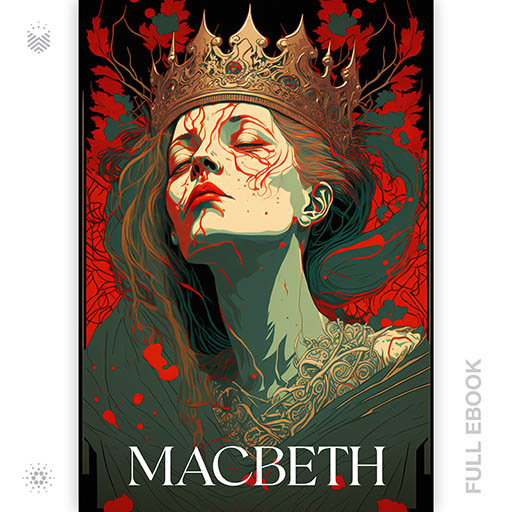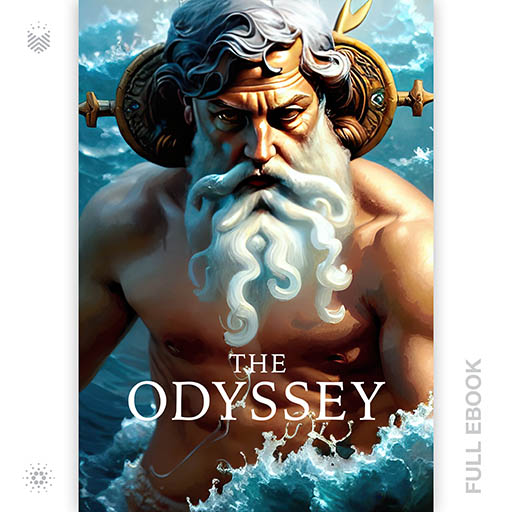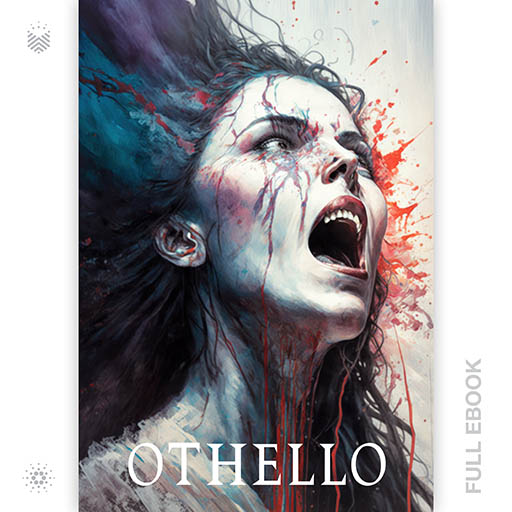Beowulf
Sold Out - Available On:
jpg.storeThis is your chance to own the fifth release in the Book Token Classics: Monster Editions. Beowulf is an Old English epic poem consisting of 3,182 alliterative lines. It is one of the most important and most often translated works of Old English literature. Scholars call the anonymous author the “Beowulf poet”. The story is set in pagan Scandinavia in the 6th century.
Description
From Wikipedia: Beowulf is an Old English epic poem in the tradition of Germanic heroic legend consisting of 3,182 alliterative lines. It is one of the most important and most often translated works of Old English literature. The date of composition is a matter of contention among scholars; the only certain dating is for the manuscript, which was produced between 975 and 1025. Scholars call the anonymous author the “Beowulf poet”. The story is set in pagan Scandinavia in the 6th century. Beowulf, a hero of the Geats, comes to the aid of Hrothgar, the king of the Danes, whose mead hall in Heorot has been under attack by the monster Grendel. After Beowulf slays him, Grendel’s mother attacks the hall and is then defeated. Victorious, Beowulf goes home to Geatland and becomes king of the Geats. Fifty years later, Beowulf defeats a dragon, but is mortally wounded in the battle. After his death, his attendants cremate his body and erect a tower on a headland in his memory.
Scholars have debated whether Beowulf was transmitted orally, affecting its interpretation: if it was composed early, in pagan times, then the paganism is central and the Christian elements were added later, whereas if it was composed later, in writing, by a Christian, then the pagan elements could be decorative archaising; some scholars also hold an intermediate position. Beowulf is written mostly in the West Saxon dialect of Old English, but many other dialectal forms are present, suggesting that the poem may have had a long and complex transmission throughout the dialect areas of England.
There has long been research into similarities with other traditions and accounts, including the Icelandic Grettis saga, the Norse story of Hrolf Kraki and his bear-shapeshifting servant Bodvar Bjarki, the international folktale the Bear’s Son Tale, and the Irish folktale of the Hand and the Child. Persistent attempts have been made to link Beowulf to tales from Homer’s Odyssey or Virgil’s Aeneid. More definite are Biblical parallels, with clear allusions to the books of Genesis, Exodus, and Daniel.
The poem survives in a single copy in the manuscript known as the Nowell Codex. It has no title in the original manuscript, but has become known by the name of the story’s protagonist. In 1731, the manuscript was damaged by a fire that swept through Ashburnham House in London, which was housing Sir Robert Cotton’s collection of medieval manuscripts. It survived, but the margins were charred, and some readings were lost. The Nowell Codex is housed in the British Library. The poem was first transcribed in 1786; some verses were first translated into modern English in 1805, and nine complete translations were made in the 19th century, including those by John Mitchell Kemble and William Morris. After 1900, hundreds of translations, whether into prose, rhyming verse, or alliterative verse were made, some relatively faithful, some archaising, some attempting to domesticate the work. Among the best-known modern translations are those of Edwin Morgan, Burton Raffel, Michael J. Alexander, Roy Liuzza, and Seamus Heaney. The difficulty of translating Beowulf has been explored by scholars including J. R. R. Tolkien (in his essay “On Translating Beowulf“), who worked on a verse and a prose translation of his own.
Numbered eBooks: 875
Number of Unique Covers: 142
Number of 1:1 Covers: 43
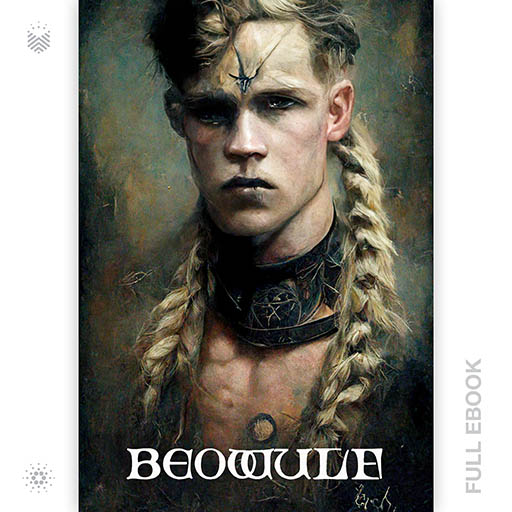
The Hero
33 Unique Designs
x 15 Numbered eBooks
= 495 NFT eBooks
(56.57% of Supply)
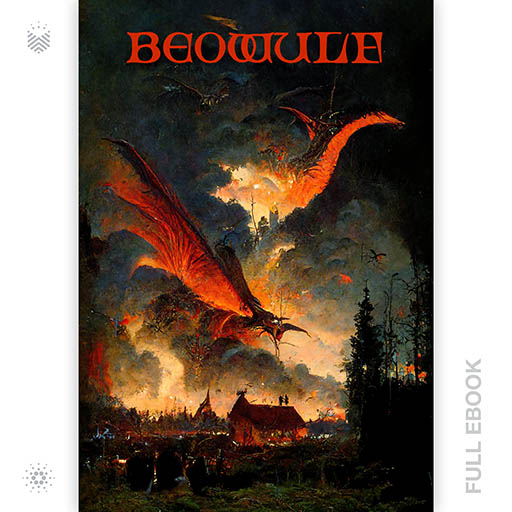
The Destruction
16 Unique Designs
x 10 Numbered eBooks
= 160 NFT eBooks
(18.29% of Supply)
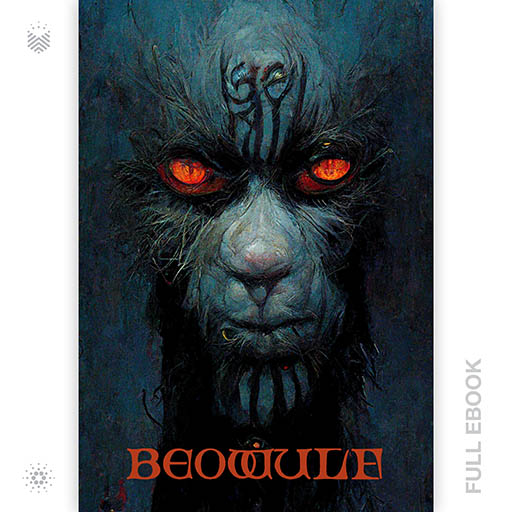
The Monster
14 Unique Designs
x 5 Numbered eBooks
= 70 NFT eBooks
(8.00% of Supply)
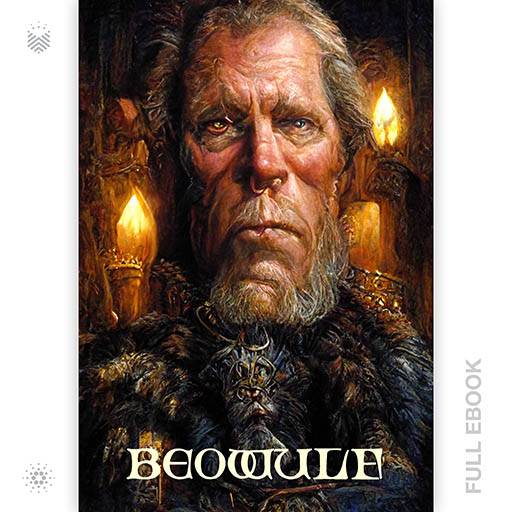
The King
13 Unique Designs
x 4 Numbered eBooks
= 52 NFT eBooks
(5.94% of Supply)
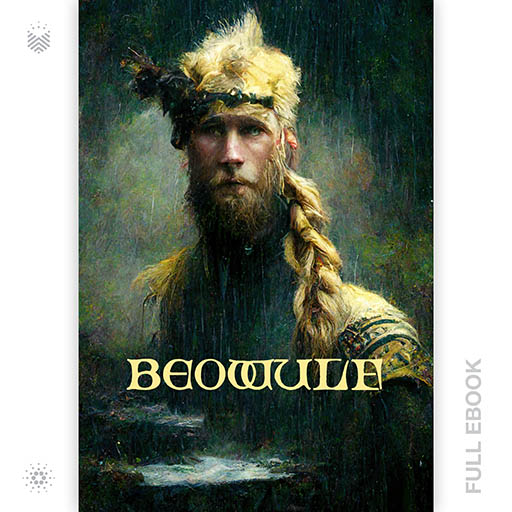
The Weather
9 Unique Designs
x 3 Numbered eBooks
= 27 NFT eBooks
(3.09% of Supply)
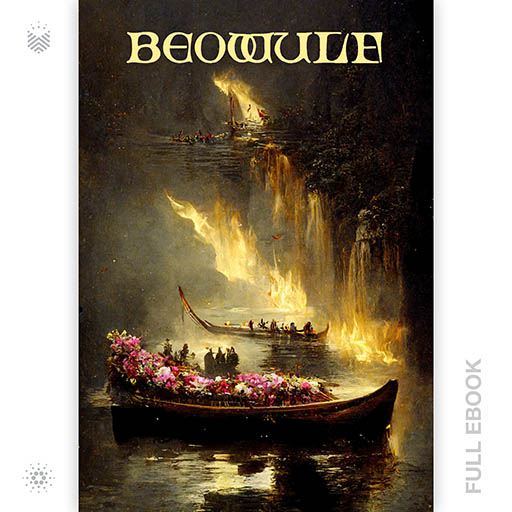
The Pyre
14 Unique Designs
x 2 Numbered eBooks
= 28 NFT eBooks
(3.20% of Supply)
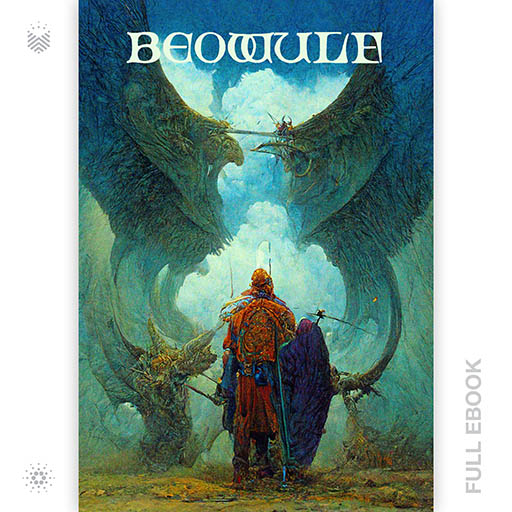
The Dragon
13 Unique Designs
x 1 Numbered eBooks
= 13 NFT eBooks
(1.49% of Supply)
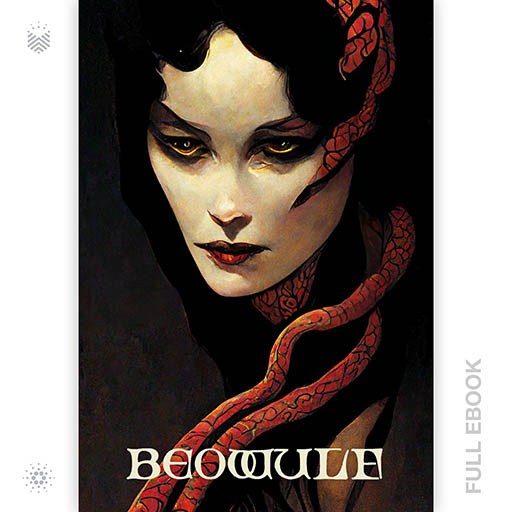
The Mother
11 Unique Designs
x 1 Numbered eBooks
= 11 NFT eBooks
(1.26% of Supply)
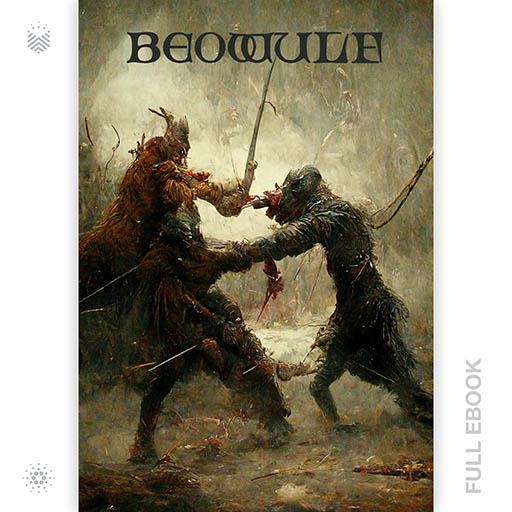
The Battle
9 Unique Designs
x 1 Numbered eBooks
= 9 NFT eBooks
(1.03% of Supply)
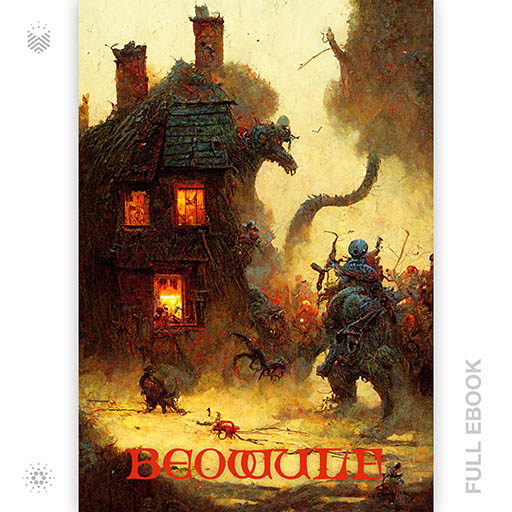
The Attack
7 Unique Designs
x 1 Numbered eBooks
= 7 NFT eBooks
(0.80% of Supply)
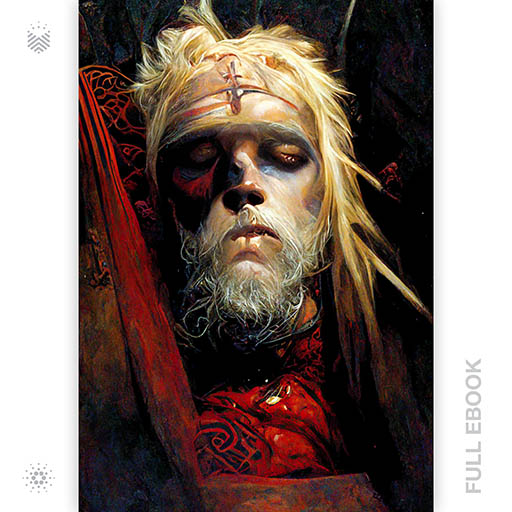
The Sacrifice
3 Unique Designs
x 1 Numbered eBooks
= 3 NFT eBooks
(0.34% of Supply)
Details
Publisher : Book.io
Series : Monster
First Publication Date : 1815
Author : Unknown
Genre : Epic Poem
Language : English
Word Count : 40,000
Format : DEA (Decentralized Encrypted Asset)
Read On : Book.io eReader dApp
Cover Art : Includes 4K hi-resolution book cover
Cardano Retail Price : 49 ADA
Cardano Discount Price : 40 ADA, #OGBookClub
Cardano Policy ID : e7514e65f977ee4b84a8e62e7d97ea2e5c11682dfe1444d8a14e74db
Author Info
by Unknown
“Beowulf,” an epic poem composed in Old English, presents a rich tapestry of heroism, valor, and the struggle between good and evil. Set in Scandinavia, the poem introduces Beowulf, a noble warrior renowned for his unmatched strength and courage. The story unfolds in a world filled with formidable monsters, ancient feuds, and grand halls where warriors gather to celebrate their victories and share tales of their exploits. The vivid imagery and powerful language transport readers to a… Read More
You might also like
by William Shakespeare
“A Midsummer Night’s Dream” is a famous comedy play written by William Shakespeare. It was most likely composed around the year 1595 or 1596 and is one of Shakespeare’s most well-known and frequently performed works. The play explores themes of love, magic, and the unpredictable nature of human emotions.
The story takes place in Athens, Greece, and the surrounding enchanted forest. It revolves around the adventures and misadventures of several groups of characters whose lives become inte… Read More
by William Shakespeare
Macbeth, a William Shakespeare tragedy, chronicles the bloody rise and fall of the Scottish warrior Macbeth. Guided by a prophecy foretold by three witches and his ambitious wife, Macbeth pursues power and the throne. He soon discovers that the prophecy and his ambition have clouded his judgment. Partly inspired by actual events, Macbeth is Book 2 of our Shakespeare series.
Read More
by Homer
The Odyssey is one of two major ancient Greek epic poems attributed to Homer. It is one of the oldest extant works of literature still widely read by modern audiences. As with the Iliad, the poem is divided into 24 books. It follows the Greek hero Odysseus, king of Ithaca, and his journey home after the Trojan War.
Read More
by William Shakespeare
Othello is a play about a Moorish general, Othello, who falls in love and marries a Venetian woman, Desdemona. Othello is an outsider in Venetian society and faces discrimination and mistrust because of his race. Additionally, Othello’s ensign, Iago, manipulates Othello into believing that Desdemona is unfaithful, leading Othello to murder her and then take his own life. The play explores themes of betrayal of love, jealousy, racism, nature of trust, and the destructive power of manipulation a… Read More

